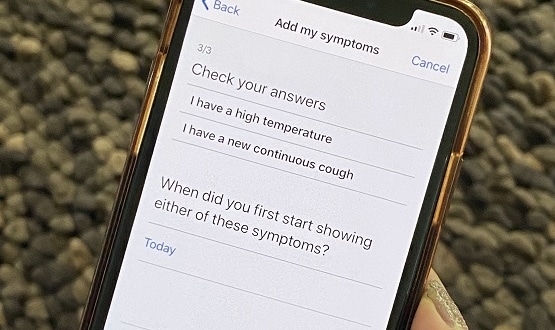NHS coronavirus contact-tracing app ‘delayed until June’
- 21 May 2020

The deployment of the NHS contact-tracing app has been pushed back until June, reports suggest.
A pilot of the app was launched on the Isle of Wight in the first week of May, with further rollout expected shortly after.
Health secretary Matt Hancock has previously said the app would be rolled out by mid-May, as had NHSX chief Matthew Gould when grilled for a data by parliament’s science and technology committee.
But the goalposts have continuously shifted, with Number 10 this week saying it would be ready in the coming weeks.
During Prime Minister’s Questions yesterday Boris Johnson said England would have a “world-beating” test, track and trace operation in place by 1 June. The app forms part of the contact-tracing system.
Labour leader Sir Keir Starmer criticised the government for not having a contact-tracing system in place since March, when it was abandoned due to limited capacity.
The Scottish government is trialling contact-tracing software in three trusts, with further roll out expected in two weeks. The Welsh government plans to have its tracing system in place by the end of May, but will be using the app developed by NHSX.
NHS insiders have told the Guardian deployment of England’s app wouldn’t take place until June to give developers time to fix issues flagged during the trial.
A Department of Health and Social Care spokesperson said the app was a “key part” of the governments response to the virus but did not confirm a launch date.
“Our absolute priority in this pandemic is to protect the NHS and save lives. We are working at pace to develop our test and trace service, which will significantly improve our ability to track the virus and stop the spread,” they said.
“The NHS Covid-19 app will form a key part of this programme, and the Isle of Wight phase is providing us with valuable insight and feedback ahead of a national rollout soon.”
The delay further adds to criticism of NHSX’s development of the app, which has been plagued by warnings about privacy and data security.
The issue of contention lies with the organisations choice to develop a centralised system, meaning data collected from the app is sent to a centralised database rather than between devices.
This differs from Apple and Google’s decentralised approach, which collects data on contacts and shares between devices. This approach is widely favoured by privacy and technology experts.
Gould has maintained its centralised approach, which relies on the self-reporting of symptoms, offers benefits that won’t impact privacy, such as the ability to better detect malicious use.
But its own ethics advisory board has raised concerns about the reliability of an app based on self-reporting, which could result in “false positive alerts could undermine trust in the app and cause undue stress to users”.
The board warned unreliable contact-tracing apps could provide a false sense of security and increase the spread of Covid-19, calling for testing to be incorporated into the app “as soon as reasonably possible”.
NHSX is reportedly working on a second contact-tracing app using Apple and Google’s technology to mitigate these concerns.
Parliament’s science and technology committee has warned the government cannot rely on the use of a contact-tracing app to ease lockdown measures, adding it’s “critical” that capacity for contact-tracing is expanded.





